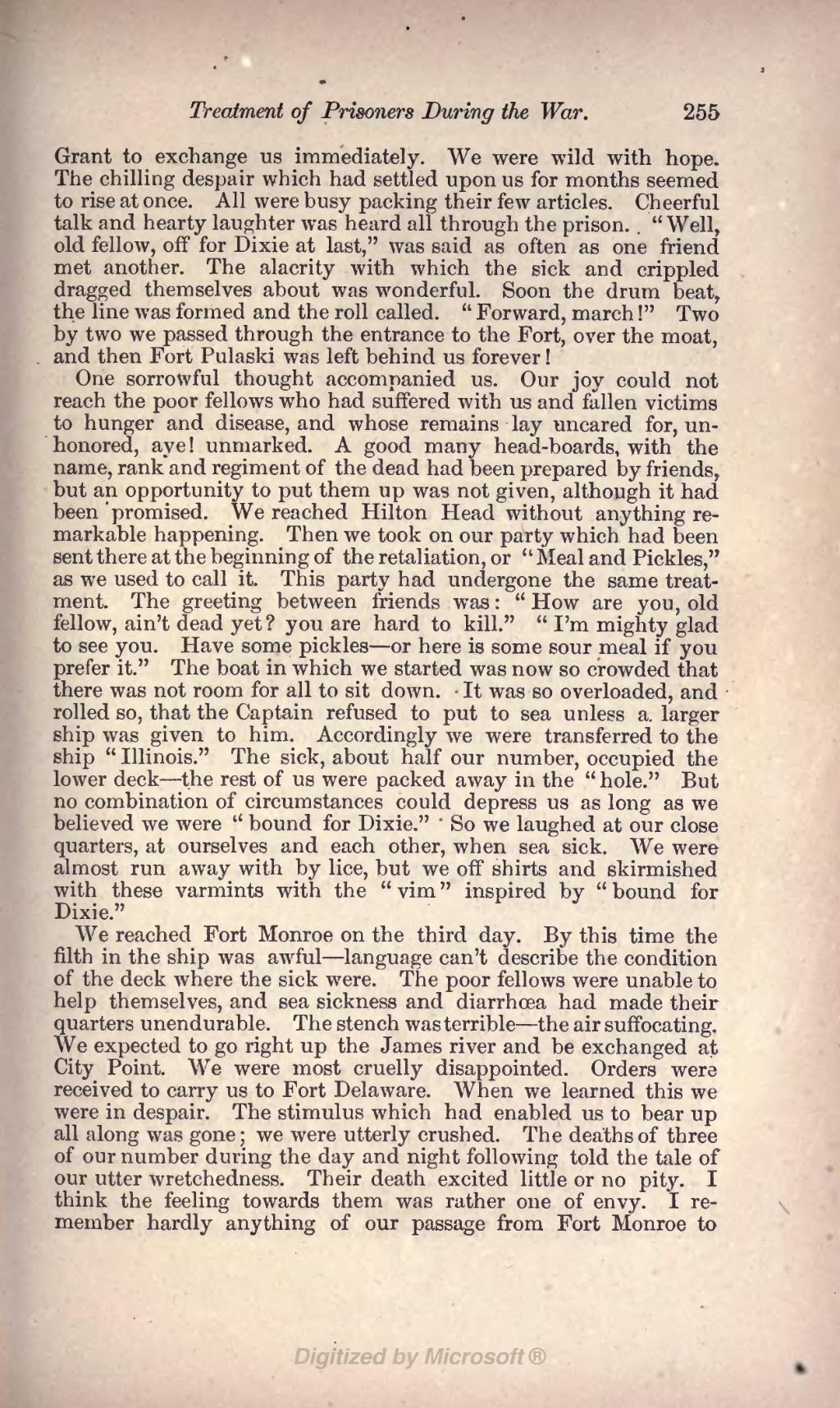Grant to exchange us immediately. We were wild with hope. The chilling despair which had settled upon us for months seemed to rise at once. All were busy packing their few articles. Cheerful talk and hearty laughter was heard all through the prison. "Well, old fellow, off for Dixie at last," was said as often as one friend met another. The alacrity with which the sick and crippled dragged themselves about was wonderful. Soon the drum beat, the line was formed and the roll called. "Forward, march!" Two by two we passed through the entrance to the Fort, over the moat, and then Fort Pulaski was left behind us forever!
One sorrowful thought accompanied us. Our joy could not reach the poor fellows who had suffered with us and fallen victims to hunger and disease, and whose remains lay uncared for, unhonored, aye! unmarked. A good many head-boards, with the name, rank and regiment of the dead had been prepared by friends, but an opportunity to put them up was not given, although it had been promised. We reached Hilton Head without anything remarkable happening. Then we took on our party which had been sent there at the beginning of the retaliation, or "Meal and Pickles," as we used to call it. This party had undergone the same treatment. The greeting between friends was: "How are you, old fellow, ain't dead yet? you are hard to kill." "I'm mighty glad to see you. Have some pickles—or here is some sour meal if you prefer it." The boat in which we started was now so crowded that there was not room for all to sit down. It was so overloaded, and rolled so, that the Captain refused to put to sea unless a larger ship was given to him. Accordingly we were transferred to the ship "Illinois." The sick, about half our number, occupied the lower deck—the rest of us were packed away in the "hole." But no combination of circumstances could depress us as long as we believed we were "bound for Dixie." So we laughed at our close quarters, at ourselves and each other, when sea sick. We were almost run away with by lice, but we off shirts and skirmished with these varmints with the "vim" inspired by "bound for Dixie."
We reached Fort Monroe on the third day. By this time the filth in the ship was awful—language can't describe the condition of the deck where the sick were. The poor fellows were unable to help themselves, and sea sickness and diarrhœa had made their quarters unendurable. The stench was terrible—the air suffocating. We expected to go right up the James river and be exchanged at City Point. We were most cruelly disappointed. Orders were received to carry us to Fort Delaware. When we learned this we were in despair. The stimulus which had enabled us to bear up all along was gone; we were utterly crushed. The deaths of three of our number during the day and night following told the tale of our utter wretchedness. Their death excited little or no pity. I think the feeling towards them was rather one of envy. I remember hardly anything of our passage from Fort Monroe to
